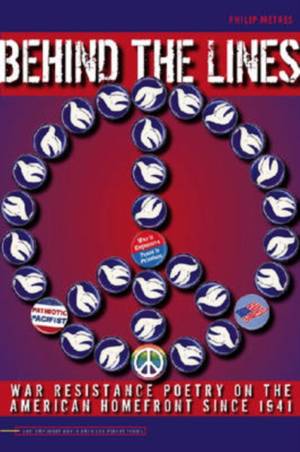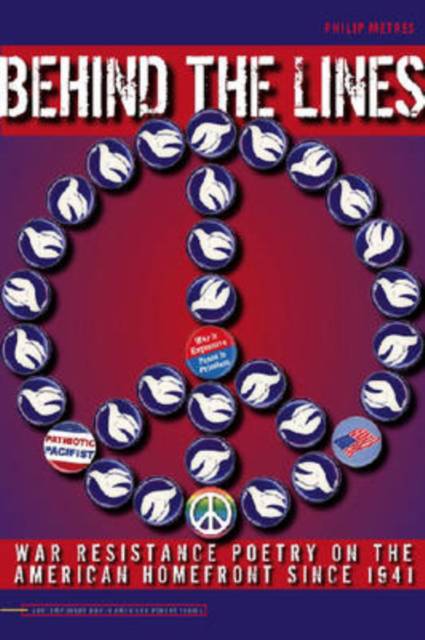
Door een staking bij bpost kan je online bestelling op dit moment iets langer onderweg zijn dan voorzien. Dringend iets nodig? Onze winkels ontvangen jou met open armen!
- Afhalen na 1 uur in een winkel met voorraad
- Gratis thuislevering in België vanaf € 30
- Ruim aanbod met 7 miljoen producten
Door een staking bij bpost kan je online bestelling op dit moment iets langer onderweg zijn dan voorzien. Dringend iets nodig? Onze winkels ontvangen jou met open armen!
- Afhalen na 1 uur in een winkel met voorraad
- Gratis thuislevering in België vanaf € 30
- Ruim aanbod met 7 miljoen producten
Zoeken
€ 55,95
+ 111 punten
Omschrijving
Whether Thersites in Homer's Iliad, Wilfred Owen in "Dulce et Decorum Est," or Allen Ginsberg in "Wichita Vortex Sutra," poets have long given solitary voice against the brutality of war. The hasty cancellation of the 2003 White House symposium "Poetry and the American Voice" in the face of protests by Sam Hamill and other invited guests against the coming "shock and awe" campaign in Iraq reminded us that poetry and poets still have the power to challenge the powerful.
Behind the Lines investigates American war resistance poetry from the Second World War through the Iraq wars. Rather than simply chronicling the genre, Philip Metres argues that this poetry gets to the heart of who is authorized to speak about war and how it can be represented. As such, he explores a largely neglected area of scholarship: the poet's relationship to dissenting political movements and the nation.
In his elegant study, Metres examines the ways in which war resistance is registered not only in terms of its content but also at the level of the lyric. He proposes that protest poetry constitutes a subgenre that--by virtue of its preoccupation with politics, history, and trauma--probes the limits of American lyric poetry. Thus, war resistance poetry--and the role of what Shelley calls unacknowledged legislators--is a crucial, though largely unexamined, body of writing that stands at the center of dissident political movements.
Behind the Lines investigates American war resistance poetry from the Second World War through the Iraq wars. Rather than simply chronicling the genre, Philip Metres argues that this poetry gets to the heart of who is authorized to speak about war and how it can be represented. As such, he explores a largely neglected area of scholarship: the poet's relationship to dissenting political movements and the nation.
In his elegant study, Metres examines the ways in which war resistance is registered not only in terms of its content but also at the level of the lyric. He proposes that protest poetry constitutes a subgenre that--by virtue of its preoccupation with politics, history, and trauma--probes the limits of American lyric poetry. Thus, war resistance poetry--and the role of what Shelley calls unacknowledged legislators--is a crucial, though largely unexamined, body of writing that stands at the center of dissident political movements.
Specificaties
Betrokkenen
- Auteur(s):
- Uitgeverij:
Inhoud
- Aantal bladzijden:
- 282
- Taal:
- Engels
- Reeks:
Eigenschappen
- Productcode (EAN):
- 9780877459989
- Verschijningsdatum:
- 1/05/2007
- Uitvoering:
- Hardcover
- Formaat:
- Ongenaaid / garenloos gebonden
- Afmetingen:
- 164 mm x 235 mm
- Gewicht:
- 535 g

Alleen bij Standaard Boekhandel
+ 111 punten op je klantenkaart van Standaard Boekhandel
Beoordelingen
We publiceren alleen reviews die voldoen aan de voorwaarden voor reviews. Bekijk onze voorwaarden voor reviews.











